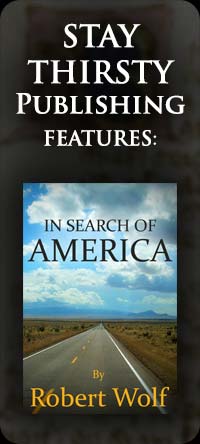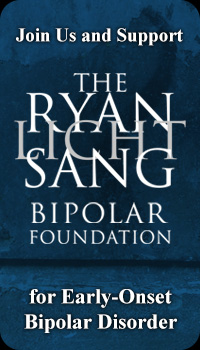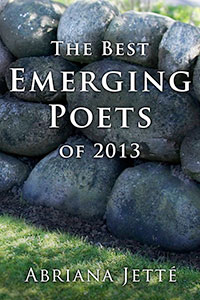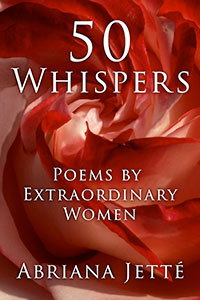

A Conversation with Writer and Poet Sandra Beasley
By Abriana Jetté
Brooklyn, NY, USA
I Don't Fear Death
Winner of a 2015 Literature Fellowship from the National Endowment for the Arts, a 2009 Barnard Women Poets Prize for I Was the Jukebox, Sandra Beasley is an American nonfiction writer and poet. She has held positions of Writer-in-Residence for Lenoir-Rhyne University in Hickory, North Carolina, as well as the fall Distinguished Writer in residence at Cornell College in Mount Vernon, Iowa. Beasley has served as the 2011 Poet-in-Residence for Maryland's Howard County Poetry and Literature Society. Currently residing in Washington, D.C., Beasley coordinates events for the Art Club in Washington and teaches with the University of Tampa's low-residency M.F.A. program. Her work has appeared in The New York Times, The Washington Post Magazine, Oxford American, and The Wall Street Journal. Her memoir, Don't Kill the Birthday Girl: Tales From an Allergic Life, a cultural history of food allergy, was published in 2011.
ABRIANA JETTÉ: I was hoping we could start our conversation by talking a little about form. In the past, you've utilized the sestina to convey emotional energy and containment. Do you think there is a particular poetic form that might best be used to speak to contemporary American culture?
SANDRA BEASLEY: There's a false dichotomy in contemporary American poetry, in which we often talk about poems being "formal" or "free" verse, when in reality, every poem has form. What matters is the balance between received and invented formal properties, between order and disorder, and amongst what Gregory Orr calls the "four temperaments" of story, structure, music, and imagination. I'm really interested to hear you call the sestina a form of "containment," because I think of the lexical repetitions as an expansive force that pushes me to take the poem somewhere it would not otherwise go.
When Patricia Lockwood's "Rape Joke" went viral, a lot of people who don't usually read poetry were talking about poetry. Something clicked. So I think it is appropriate to look at the poem not only in terms of its theme, but its formal qualities:
- The implied speaker is simultaneously confessional and distancing. She invokes the "you," who seems to really be a displaced version of the "I."
- The poem uses a list structure, with lots of parallelism, and derives its fissive energy from breaks between verse-paragraphs rather than within sentences.
- The tone is both digressive, full of one-liners and asides, and aggressive, circling back over and over to this act of assault.
- The humor is edged, and everyone knows it. The poem is exceedingly self-aware.
The sum of those qualities isn't neatly aggregated under "sonnet" or "ghazal," per se, but they are vital, key qualities that resonate with our larger culture. People responded because Lockwood took on a subject that mattered, and invigorated a familiar trauma with unfamiliar technique. We forget that poems have, and should have, such powers.
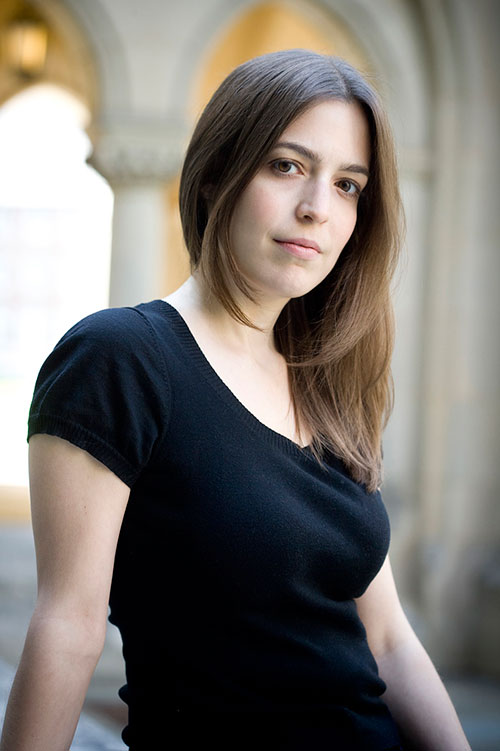
Sandra Beasley (credit: Matthew Worden)
ABRIANA JETTÉ: You once said "yearning was at the core of every good poem." Certainly, when we write in form, part of the poem yearns to be free. What sort of yearning attracts you as a reader? Is there a relationship between the poems you read and the poems you write?
SANDRA BEASLEY: We write poetry into open spaces, right? Poetry isn't decoration. We don't layer it on the surface like icing atop a fat cake. Which is another way of saying, we write poetry into what is lacking; what is desired, emotionally or narratively.
I read voraciously, including a ton of nonfiction. Any Sunday's New York Times offers enough yearning to fuel a thousand poems. When it comes to other people's poetry I try to read anything that comes my way, at least to the extent that I have a better understanding of the craft principles at stake. I'm grateful to be in an age of so many literary journals.
That said, in terms of favorites, I love a good ending from a poet who isn't afraid to assert a truth claim. Two authors whose work I read and re-read are Rita Dove and Jack Gilbert. Maybe they don't have anything obvious in common on first look, in terms of their subjects, but those are two poets who nail their endings. They provide resolution without forcing closure. I really admire that, and it is something I strive for in my own work.
ABRIANA JETTÉ: One difference between poetry and prose, for me, is that poetry begs to communicate both publicly and privately—it is often read in silence yet also wants to be read aloud. When you are writing, do you think of the poem as an oral art?
SANDRA BEASLEY: Reading and performing poetry is such an essential pleasure for me. When I was a student at University of Virginia, I used to sneak into the university chapel or Jefferson Hall on the West Range just to read aloud, usually from the huge Norton Anthology of Modern Poetry that I had to tote around for my English classes. Reading drafts aloud is a critical part of my process. For all of my adult life, I have lived in city apartments with sound-permeable walls. I'm sure I've driven a few neighbors crazy with poetry, which seems apt revenge for their lonely beagles and ambitious sex lives.
ABRIANA JETTÉ: You write memoir and poetry and you also translate. Do you adopt a different approach when writing in each form? Similar, how has writing persona poems influenced your prose?
SANDRA BEASLEY: As a writer I value clarity, humor, and what I call the "bright particulars" of imagery no matter the genre. I also gravitate toward research as a preparatory process, which originated with writing persona poems—the need to borrow someone else's vocabulary and cultural references. The groundwork of Google searching serves me equally well whether I'm writing about capybaras, allergies, or bluegrass.
When I first started toggling between poetry and nonfiction, in my late twenties, I adopted very different physical habits for each. Poems would be drafted late at night, with scotch; prose first thing in the morning, with coffee. This has gotten more fluid as I've gotten older, perhaps because I write more often to outside deadline, or perhaps because my hours are weirder than ever. Sometimes I stay up until 3 AM working, then sleep until 11 PM. Sometimes I go to bed at 9 PM, then wake up at 3 AM to work.
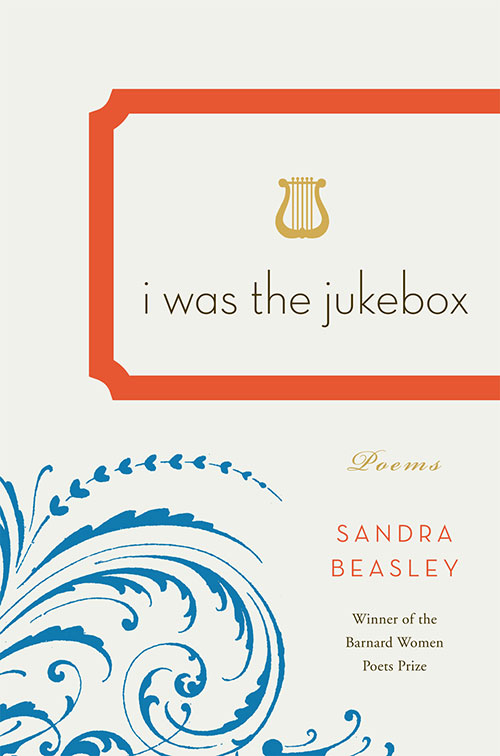
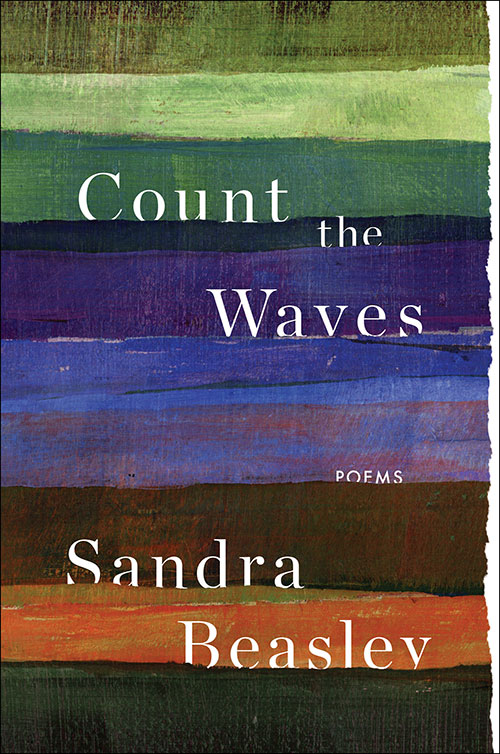
ABRIANA JETTÉ: How varied was the process of putting together I Was the Jukebox from Don't Kill the Birthday Girl: Tales from an Allergic Life? Did anything surprise you about the capabilities of voice?
SANDRA BEASLEY: Actually, I Was the Jukebox and Don't Kill the Birthday Girl were both composed in fairly distinct, intense spurts of writing—a month at a time of heavy drafting output, each over the course of about two years respectively. I would usually prime the voice of the memoir by re-reading the section I'd written just before, to keep the tone consistent from day to day for the sake of the reader experience.
What has been an interesting contrast is Count the Waves, which includes poems spanning the course of ten years, thousands of miles, and multiple relationships. I've never had to work so hard to make a manuscript cohere before. In that sense I think this third collection represents the best, hardest work I have ever done.
ABRIANA JETTÉ: If you had to compare yourself to one poet of the past, who would it be? Why?
SANDRA BEASLEY: William Zinsser said that writing is an act of ego, and he's right, but I still have a hard time generating the ego required by this question. Yielding to comparison is different from claiming affiliation, right? I'll take comfort in that. I'd compare myself to Sylvia Plath or Elizabeth Bishop, but not because I consider my writing to be in the same league as the latter, or because I romanticize the life choices of the former. I just enjoy the excuse to think about the work of either one more deeply.
ABRIANA JETTÉ: I've read that you "prioritize your poetry"; that if the inclination to submit hits, you listen to it and act. This is good advice for all sorts of writers. What other words of wisdom can you offer emerging writers?
SANDRA BEASLEY: You have to prioritize poetry, because no one else will ever do it for you—even people who love and support your work, even the grant-makers of the world. I can't emphasize this enough. A community can help create a space, and that is critical. Yet only you have the power to get the words onto the page. I dislike the paradigm of the flaky poet, but seriously: screw your housework, and your deadlines. Write the poem. Nothing obviates regret, whether large scale or small, like the thrill of finishing a draft.
Also: Hydrate. Go for walks. Say yes to the invitation to read. Say yes to the dance party. If you're not writing, maybe you're not reading enough. Be patient and humble with editors, who are usually in it as a labor of love. Get people's names right. If you go to an art colony, bring a fan in the summer and a space heater in the winter. Save your first drafts.
ABRIANA JETTÉ: What can we expect from you in the future?
SANDRA BEASLEY: You have to take a strong step in a different direction after you publish a poetry collection. Otherwise, you torture yourself by asking, "did this belong in the book?" So I have been writing poems about food and drink, specifically regional delicacies like dried mullet and goober rigs, in collaboration with a great organization called the Southern Foodways Alliance, which publishes a journal called Gravy. I'm profiling another bluegrass musician. I'm writing essays that blend craft and memoir, for a long-term project—no book proposal in hand, just an organic sense of something I'd like to publish in five or ten years. I'm open to anything. I'm on the move.
Links:
Abriana Jetté at Stay Thirsty Publishing
Abriana Jetté

